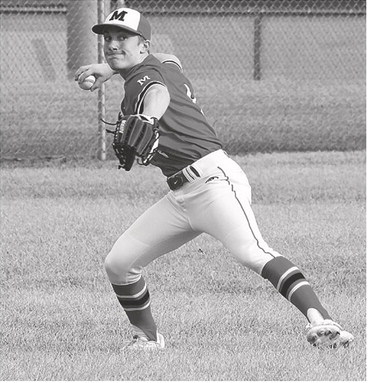Wisconsin DNR, Conservation Congress to host spring hearings Monday, April 14
The Wisconsin Conservation Congress (WCC) and Wisconsin Department of Natural Resources (DNR) invite the public to attend spring hearings on Monday, April 14 at 6 p.m. to learn about resource management through the annual Fish and Wildlife Spring Hearing process.
Additionally, an online opportunity for public input will be available from 7 p.m. April 14 through 6 p.m. Wednesday, April 16.
DNR staff and WCC delegates will be on hand at these spring hearings to discuss local issues of importance, answer questions from the public and open a dialogue between the public, the DNR and the WCC about areas of interest and concern.
The WCC will also hold their delegates’ elections at each meeting. Two of the five WCC seats will be up for election in each county.
Taylor County’s hearing will be held in the Medford Area Senior High library. The published agenda calls for DNR staff presentations to start at 6:30 p.m., followed by the WCC elections at 7 p.m. That will be followed by remaining DNR presentations. A review of citizen resolutions that were introduced in the county and the DNR spring hearing questionnaire is scheduled to start at 7:30 p.m.
Finally, the public is invited to provide feedback on a variety of fish, wildlife and other natural resourcesrelated topics as part of the spring hearing process. The public is encouraged to provide input online from 7 p.m. April 14 through 6 p.m. April 16. For those who prefer to do so in person, a number of paper ballots will be available at each in-person meeting.
More information is available on the Wisconsin Conservation Congress spring hearing webpage, https:// dnr.wisconsin.gov/about/wcc/springhearing.
The Wisconsin Conservation Congress is the only statutory body in the state where the public elects delegates to advise the Natural Resources Board and the DNR on responsibly managing natural resources for present and future generations. The Congress accomplishes this through open, impartial, broad-ranged actions. Learn more about the WCC and how to become involved in resource management decisions at https:// dnr.wisconsin.gov/about/wcc.
On the agenda
This year’s questionnaire has 74 questions, starting with four proposed wildlife management rule changes.
The first asks for input on allowing hunters who quarter their deer in the field to leave non-edible parts at the site of harvest. The second asks for support for trapping using technology such as trail cameras to meet trap tending requirements. The third asks if the fall turkey season in zones 6 and 7 in far northern Wisconsin should be extended to the Sunday nearest Jan. 6 to match the rest of the state. The fourth asks if the public supports allowing disabled deer hunters to hunt statewide during the first two days of their special October season, coinciding with the two-day youth hunt. Disabled hunters now are currently required to hunt in a sponsored event on enrolled property. This would allow them to hunt on their property or other land they have access to.
Questions five through 10 are proposed fisheries management statewide rule changes. One proposal would allow motor trolling with three lines in Lincoln, Sawyer, Sheboygan and Waupaca counties and restrict trolling to one line in Forest County. Another would start the trout and salmon inland fishing seasons on the first Saturday in April, rather than May. A third would alter trout regulations creating one statewide county-based regulation of five trout in total with no minimum size limit. Currently there are limits of three fish with an 8-- inch minimum size on 988 state trout streams.
Another fisheries proposal asks if a catch-and-release lake sturgeon season would be supported on several state rivers, including the Jump River. Questions 11-36 are local fish management proposals, none of which pertain to Taylor County.
Those are followed by a series of questions regarding experimental panfish regulations that have been in place on 94 lakes across the state since 2016. Those regulations sunset on March 31, 2026. Question 40 includes Rib Lake as one of the waters where the DNR is proposing to enact an aggregate limit of 10 panfish per day. The goals for waters included in this question are to protect or improve the size structures of multiple panfish species present in the lakes and to simplify regulations, make them more consistent and more enforceable.
Currently, Rib Lake is under a 25 panfish per day limit, with no more than 10 per species.
The Natural Resources Board is presenting an advisory question asking if the public would support requiring all active bear baits on public land to be labeled with identification.
This year, the WCC has brought 28 advisory questions on a variety of topics for voters to consider. Some of those include: Would you support the elimination of lead ammunition and fishing tackle?
Would you support allowing the use of foothold traps with a jaw spread of up to 9 inches in the water?
Would you support a rule change which would require a favorable BMP rating, irrespective of jaw spread, for traps to be legal for use in Wisconsin?
Would you support legislation that would allow DNR wardens to enforce local ordinances on our lakes?
Would you support legislation establishing a $5 annual habitat stamp to fund upland, warm water lakes and streams habitat projects?
Would you support the DNR adding two additional dates for servicemembers and veterans for waterfowl hunting that are distinct from the youth hunt dates?
Would you support allowing County Deer Advisory Councils the option to extend the late archery season archery hunt to Jan. 31 without having an approved holiday hunt in their county?
Would you support increasing resident deer hunting license fees for archery and firearms to an amount that is more in line with our neighboring states? The increase would also show up on sportsman’s and conservation patron licenses.




